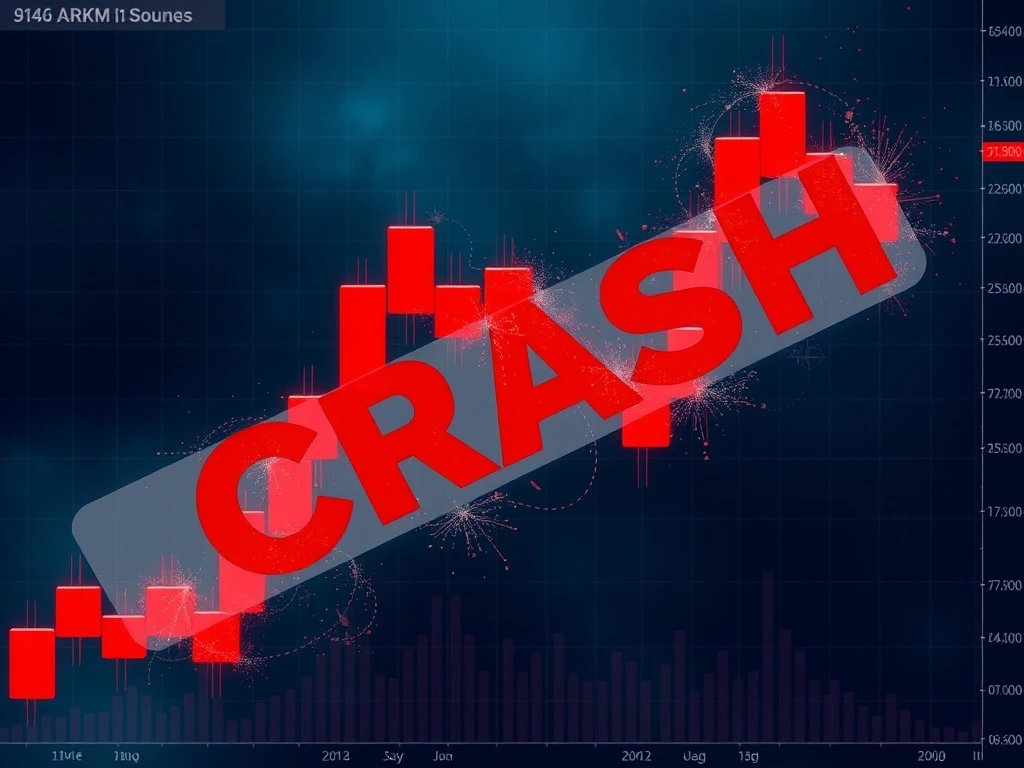ARKM Plummets 146%: Shocking Crypto Crash Amid Extreme Volatility

In a stunning market development, ARKM has experienced a catastrophic -146.14% drop within just 24 hours, sending shockwaves through the cryptocurrency community. This unprecedented volatility has traders scrambling for answers as one of the market’s most dramatic crashes unfolds.
What Caused the ARKM Market Crash?
The ARKM token’s extreme volatility appears driven by multiple factors:
- Panic selling among retail investors
- Broader market instability affecting altcoins
- Potential liquidity issues in the ARKM ecosystem
- Speculative trading amplifying price movements
Analyzing the ARKM Price Collapse
The numbers tell a terrifying story:
| Timeframe | Percentage Drop |
|---|---|
| 24 Hours | -146.14% |
| 7 Days | -1890.03% |
| 30 Days | -146.14% |
| 1 Year | -6594.52% |
Expert Perspectives on ARKM Volatility
Market analysts offer conflicting views:
- “This could represent capitulation before a potential rebound” – CryptoQuant Analysis
- “The token’s fundamentals appear broken” – Blockchain Research Group
- “Retail investors should exercise extreme caution” – TradingView Senior Analyst
Protecting Yourself in Crypto Market Turbulence
For traders navigating this volatility:
- Implement strict stop-loss orders
- Diversify across asset classes
- Monitor liquidity indicators closely
- Consider hedging strategies
FAQs About the ARKM Crash
What caused ARKM to drop 146%?
The extreme volatility appears driven by a combination of market sentiment, liquidity issues, and broader crypto market instability.
Is this the end for ARKM?
While the token faces significant challenges, cryptocurrency markets have shown remarkable resilience in the past.
Should I buy the dip on ARKM?
Extreme caution is advised. The token’s fundamentals and market structure appear significantly damaged.
How can I protect my portfolio from similar crashes?
Diversification, position sizing, and risk management strategies are essential when dealing with volatile assets.









